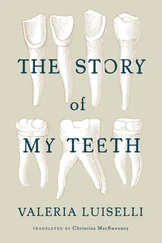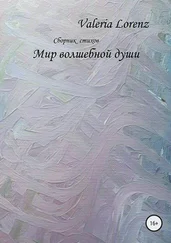Go
Nowadays, only someone sensible enough to own a bicycle can claim to possess an extravagantly free spirit when he puts on a hat, leaves the writing room, or “room of phantoms,” and runs down the stairs to unchain his bicycle and ride out into the street.
Calle Mérida — northbound
Around six in the evening, when that last layer of daylight begins to detach itself from the objects in our living room and the electric light only serves to blur the somewhat unclear outlines of things even further, I feel an urge to leave the apartment. I don’t know if it’s because matter itself becomes restless with the first shadows of night — as if darkness allows objects to overflow a little beyond themselves and things are on the point of breaking their pact of silence with the world — or if it’s just I who can’t find peace at that tranquil hour. And it’s around that time too that Sara comes back from work and takes out her painting materials. The apartment fills with kettle murmurs, barefoot steps, the pine-forest smell of oils and thinner. I put on the old hat I’ve taken to wearing, get on my bicycle, and go out into the streets of the Colonia Roma.
A few blocks later, I chain my bike to a lamppost and go into the Librería del Tesoro — one of the few bookstores left in the neighborhood. I look for a Portuguese dictionary, which, once again, I can’t find. I shall have to continue putting off my good intentions to learn Portuguese the proper way. Instead, I buy two books of Brazilian poetry and a postcard for forty-seven pesos. I’m beginning to suspect that what I like about Portuguese is misunderstanding it.
Some years ago, I attended a conference in which two experts were discussing the Portuguese term saudade . It was one of those events where the speakers establish a hierarchical relationship between themselves and the audience, the members of which come away with the sole idea that they haven’t really understood what was being discussed. The first lady — whom I had trouble taking seriously as she vaguely resembled a wrinkled version of the child Shirley Temple — argued that saudade is one of those untranslatable words that can only be understood by those who love, experience pleasure, and suffer in Portuguese. If you are not a lusophone, the other speaker declared, you have no right to borrow saudade . Could be. But then, why not just steal the word?
It’s started raining outside, so I grab a stool and sit down between two sets of shelves to take a look at my new books. I search for any trace of the word saudade among their pages. Nothing. But some lines I half understand jump out at me:
calçadas que pisei
que me pisaram
como saber no asfalto da memoria
o ponto em que comença a fantasia?
I’m not sure what the lines say, though the words ponto, asfalto, memoria, and fantasia form a dim constellation of possible meanings — perhaps all connected to saudade. When we have only a partial knowledge of a language, the imagination fills in the sense of a word, a phrase, or a paragraph — like those drawing books where the pages are covered with dots that, as children, we had to join with a crayon to reveal the complete image. I don’t understand Portuguese, or I understand it as partially as any other Spanish speaker. If I say “saudade,” it will always be joining the dots of a foreign page.
Turn left at Durango
Saudade isn’t homesickness, lack, or longing. The Finnish kaihomielisyys —though it contains smooth, mellifluous sounds — expresses only its most desolate sense. The German Sehnsucht and the Icelandic söknudur seem to suck out the meaning of the word; the Polish tesknota sounds bureaucratic; the Czech stesk shrinks, cringes, cowers; and the Estonian igatsus would come closer if spoken backwards. Maybe saudade isn’t saudade.
Circle Plaza Rio de Janeiro — clockwise
Although saudade is loosely related to melancholy and nostalgia, the origins of the word are unclear. It’s possible that it was the name of a Portuguese sailing ship, the São Daede, which, in 1497, preceded Vasco da Gama in the exploration of the Indian Ocean. It may be derived from the Latin solitudinis or the desert saudah of the Arabs. It could also have been a musical instrument from the coast of Mozambique, or just as possibly the name of a voluptuous woman from the jungles of Guinea Bissau.
Left again at Orizaba
Melancholy used to be a humor, an excess of black bile. Aristotle thought it was a divine gift, only given to men of true genius. In the Middle Ages, melancholy’s fetid vapors were thought to dim understanding and perturb the soul. Of the four bodily humors — phlegm, yellow bile, blood, and melancholy — the last was the coldest and driest. The melancholic person had sunken eyes and a taciturn expression: he was circumspect, stern, and solitary; insomniac and given to nightmares; passionate and jealous. He had a waxen complexion, was flatulent, his excretions were painful, his urine colorless and sparse. The cause of melancholy, according to popular wisdom, was poor diet, and it was cured by purges, unguents, poultices, and bloodletting.
With time, the number of causes of melancholy grew and became less worldly:
The planet Saturn
Idleness
Excess of knowledge
Witches and wizards
The cures, however, remained terrestrial. In 1586, in a letter to an imaginary melancholic patient, Dr. Timothy Right recommended that he avoid:
Cabbage, dates, olives
Leguminous plants and chickpeas
Pig meat, mutton, and goat
Seals and porpoises
Continue along Orizaba — ride on sidewalk to avoid traffic
Bastard daughter of melancholy, the term nostalgia inherited the characteristics of black bile but never achieved its former divine status. The magic humors of mother melancholy evaporated in the three dry syllables of her aseptic daughter: nos-tal-gia. Like other such “algias” as cephalalgia and neuralgia, nostalgia was, in the seventeenth century, firmly fixed as a clinical condition. It’s no surprise that its appearance coincides with the era in which “afflictions of the soul” became “pathologies of the psyche.”
Nostalgia was the invention of Johannes Hofer, a military doctor. Hofer treated Swiss soldiers who, after long periods in foreign lands, suffered from a set of common symptoms: headaches, sleeplessness, heaviness of heart, hearing voices and seeing ghosts. The exiled soldiers took on a gloomy, almost phantasmagorical aspect — they walked around as if absent from the world and in their imaginations confused the past and the present.
Hofer made note of every one of the soldiers who came into his consulting room during the year 1688, and as the number of nostalgic cases on his list grew, so too did his impatience to organize that series of coincidences into a single pathology. Like someone who awaits the passage of a comet in order to be able to place his name on the celestial map, Hofer waited for the arrival of the very last soldier to christen his hypothesis. Then, satisfied, he closed his casebook and began his Medical Dissertation on Nostalgia .
Nostalgia, according to Hofer, is an illness that expresses itself in a specific symptom: pain ( algia ) for the home ( nostos ). And like any other illness, remedies can be found to treat it. If the nostalgia is a longing for something concrete, it may perhaps be weakened by eclipsing the memory of what was with the overwhelming presence of what is. Leeches, for example, may distract the mind from the abstract pain of the loss of home by the very real pain of their bites. Opium constructs inebriating scenarios that mist the memory of the past.
Читать дальше












